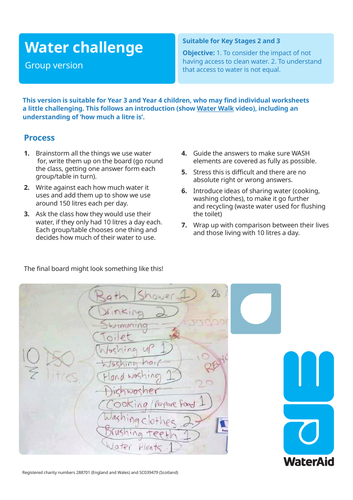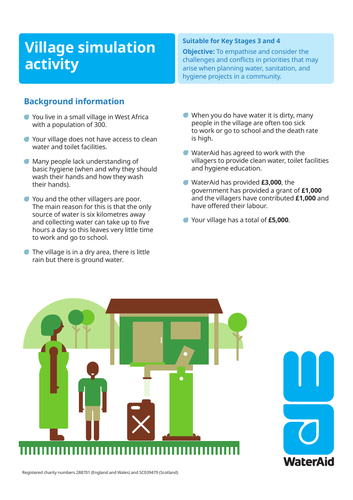WaterAid UK
Clean water, decent toilets and good hygiene are basic human rights. They should be a normal part of daily life for everyone, everywhere – but they aren't. That's why we're here. We aim to provide useful, accessible and engaging resources to help educated young people in water related topics and issues.











